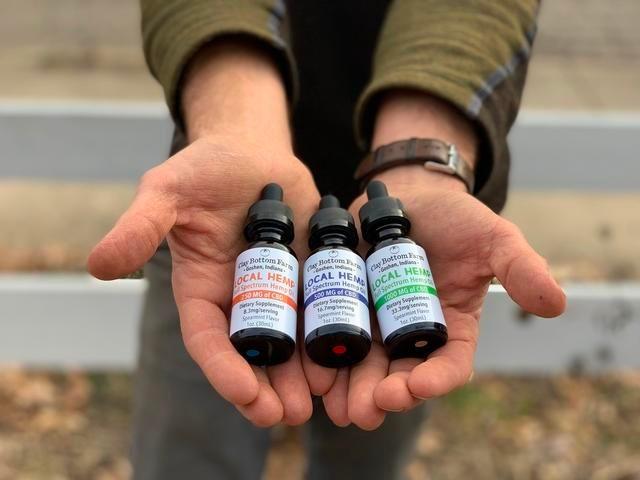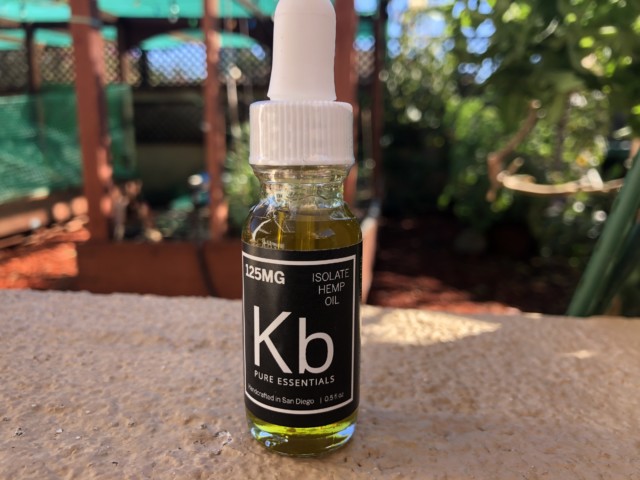
CBD Reduces Chronic Pain
Cannabidiol (CBD), a non-psychotropic cannabinoid, is gaining increasing popularity among chronic pain patients. In the United States, a survey of pain patients indicated that hemp-based medications and CBD reduce chronic pain in a large proportion of patients. This would also help to reduce the dosage of strong opioid-based painkillers.
Survey of seven pain clinics
The U.S. research team surveyed a total of 253 patients, with an average age of 45.4 years, from seven pain centers in Southern California. They invited patients to participate in the survey via posters and flyers between December 2018 and February 2019.
152 people (62%) said they had already had experiences with CBD products. The most commonly treated pain conditions were back pain (67.3%), nerve pain (46.7%), and neck pain (44.7%). In 56.3% of the cases, the CBD product also contained psychotropic and analgesic tetrahydrocannabinol (THC).
The chronic pain disorders treated were:
- Back pain
- Neuropathic pain
- Neck pain
- Migraine headaches
- Extremity pain
- Fibromyalgia
CBD was most frequently used by inhalation (62.9%), followed by edibles (54.3%) and oral hemp tinctures (52.3%). Most CBD users had baggage with various dosage forms.
The forms of administration used were:
- Inhalation or tobacco
- Edibles
- Oral tinctures
- Topical hemp preparations (cream, ointment, oil)
- Capsules
- Spraying
Significant improvement and reduction of painkillers
Fifty-nine percent of respondents reported pain relief through the use of CBD. In addition, approximately two-thirds (67.6%) were able to reduce the dosage of other analgesics. Just over half (53.7%) were also able to reduce highly effective opioid-containing medications.
The experiences of the respondents’ social and family environment were also very positive: 78.1% of the participants stated that they knew people in their family, circle of friends, or neighbors who had successfully treated their discomfort with CBD. Tolerability was generally good: only 7.3% of patients know people who have reported adverse effects.

Study on the Status of CBD in chronic pain
Scientific research on the effect of CBD on chronic pain is still “in its infancy”. It is taken for granted that pure CBD has a low abuse potential. What’s more: an American study, in 2019, evidenced that Epidiolex®, a CBD medication, can reduce addiction pressure and anxiety in heroin-dependent withdrawal patients.
Current data suggest that for chronic pain, especially neuropathic pain, THC has a stronger analgesic effect than CBD. Therefore, it is possible that the minimal remaining THC content in full-spectrum extracts also contributes to the analgesic effect of CBD products. Therefore, it is important for users to be aware of the CBD and THC content of hemp products.
Another US study in 2020 showed that patients with chronic pain were able to reduce their opioid analgesics after 8 weeks of treatment with CBD. Therefore, hemp-based medications can improve painful symptoms regardless of whether they contain THC or CBD.
Difficulties when taking CBD products
People who wish to use cannabidiol should only use CBD products with a proven active ingredient content. Many products on the market do not meet these quality requirements. The fluctuating cannabinoid content, in combination with a patchy or in some cases unsuccessful user experience, makes targeted therapy with CBD preparations difficult. Check out this post linked here for additional tips and information.
In addition, it is often unknown whether and how much full-spectrum extracts contain THC. This can lead to the risk of testing positive in test in case of elevated concentrations.
The survey participants’ experiences with hemp-based medicines and CBD are predominantly positive. Still, further scientific studies are needed to clarify whether CBD can be an effective treatment option for various pain disorders. Research should also continue to investigate the differences between CBD isolates and full-spectrum extracts. To ameliorate the problem of incorrect CBD concentration, quality guidelines for CBD-containing preparations with control of CBD and THC content are useful.
